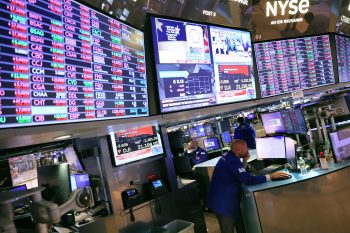What does an interest rate hike mean for you?
We’ve convened a special edition of our usual Friday Weekly Wrap to talk through and answer some of the questions that our listeners have been asking about what this interest rate hike means for them.
Todd Vriezelaar from Iowa asks, “Wouldn’t it be better to hold until January? Would a December raise make markets and investments sour at year end?”
“Why now? I guess the real reason is ‘why not?’ Because the Fed has basically said for the last several weeks that now is the time,” says Nela Richardson of Redfin. “We’ve seen in the past when they’ve missed a time, when they said they were going to raise and they didn’t — markets didn’t like it much. This time it’s about credibility, they said they were going to do it and by golly they did it. The labor market has improved enough, inflation is OK-enough for them to do it now rather than wait.”
“The Fed doesn’t care about year-end figures,” adds Felix Salmon of Fusion. “Actually, for the stock market, the year has been fantastic, this has been a great year for stocks. And so, if there is any decrease in the stock market, which I seriously doubt there will be given how well telegraphed this whole thing was, now is probably not a bad year to have a little year-end-decrease. Next year might be much worse.”
Raymie Humbert from Arizona asks, “How will the Fed’s interest rate rise impact the strong dollar, which has hurt U.S. exporters?”
“Higher rates means stronger dollar. Interest rates, basically more than anything else, determines the strength of the currency. And at the margin, the higher the interest rates are the stronger the dollar is going to get,” said Salmon. “We are only talking about a quarter-point here, so it’s not a huge thing. But if they continue to raise through 2016, yeah it’s going to make a difference. It’s going to mean that life is harder for exporters and life is easier for importers.”
Stephanie Bell from Massachusetts asks, “My husband and I were looking to buy a house. How will our savings accounts be affected?”
“Good news for savers. They had the bad part of this whole quantitative easing Fed policy for way too long,” said Richardson. “Now if you’re trying to save for a down payment, you finally might get some lift-off, but don’t expect it right away. There is still some debate out there by commentators of whether the big banks will raise interest rates on the deposits in lockstep with the fed decision today, but eventually you’ll see a higher return on that deposit and that’s good news if you are saving for a house.”
And finally, listener Cris Whetstone asks, “Is this as important as we are led to believe it is anymore, to anyone besides policy wonks and big financials?”
“This is a complete non-event. Like, there’s really no reason for any normal person to care about this,” said Salmon. “The big picture in terms of how much you pay for your credit card, or your car loan, or your student loan, or your mortgage – none of those are changing and so no, it has no actual effect on day-to-day life. If they continue to hike through 2016, perhaps, they might change.”
There’s a lot happening in the world. Through it all, Marketplace is here for you.
You rely on Marketplace to break down the world’s events and tell you how it affects you in a fact-based, approachable way. We rely on your financial support to keep making that possible.
Your donation today powers the independent journalism that you rely on. For just $5/month, you can help sustain Marketplace so we can keep reporting on the things that matter to you.


















